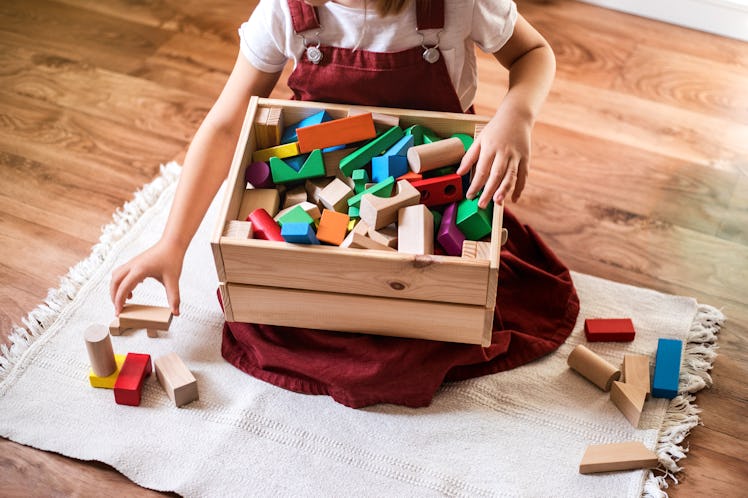Chores For Kindergartners: What Can Kids Really Handle?
Kindergartners clean up at school, so they can do the same at home. Parents need to set firm boundaries about expectations and follow through.

Adults know that most chores are a drag, but getting kids to do their chores doesn’t have to be. Even toddlers can handle a surprising number of tasks, provided they are guided by their parents. And once those kids are in kindergarten, there are all sorts of responsibilities added to their routines. It’s the routine that makes it possible for kids to handle their responsibilities, says Shanna Donhauser, a child and family therapist at Happy Nest therapy in Seattle.
“Young children unaccustomed to chores at home will likely experience chores or responsibilities at school. Many classrooms have responsibilities for their students like wiping down desks, putting homework and supplies away, hanging up their backpacks and clothing,” Donhauser says. “What makes it easier at school? Routines, predictability, firm boundaries, and peer or shared experience. You can recreate these at home to elicit more cooperation from children.”
Those sorts of chores are ideal for kindergartners: putting away their backpack and coat, unpacking their lunchbox, wiping down surfaces, putting away toys, and organizing or sorting things like silverware. They are right in line with the sort of responsibilities kids need to manage at school, and they still help contribute to the maintenance of the home.
In fact, routines can help children see the impact that cleaning up has on their environment. Wipe down the table after a meal? Now it’s clean. Make the bed in the morning? Now the bed looks nice. Kids already have the routine; when it comes to adding responsibilities, it’s the parents’ job to make sure they’re appropriate, achievable, and consistently expected.
“When you have a routine, be sure it is consistent and predictable. Set an alarm, stack it on an existing habit, or create a visual to help you remember,” suggests Donhauser. “Most parents already have routines in place; some need to be stricter about following through with the routine. Others need to be more flexible about developmental limitations. Reflect on what happens in your home and how it’s working, and how it’s not.”
Parents have to remember that a full day at school can be physically and emotionally exhausting for a kindergartner. It’s not uncommon for bedwetting to increase once a kid starts school, because they sleep so soundly. They have to navigate the tedious waters of public opinion (yes, even in kindergarten). And they have to contend, possibly, with their parents’ high expectations and an early start they possibly weren’t prepared for. So if their routine is broken — because of a missed snack, missed nap, or because the day is too unpredictable — kids can have a hard time keeping it together long enough to finish their chores. That’s when parents need to step in and make sure the kids have the emotional support and role model they need to finish the job.
“Make allowances when necessary,” Donhauser says. “Connect, model, and narrate to encourage follow-through. For example, a parent might say: ‘I know you don’t want to pick up your toys. You were having so much fun playing, and you’re not ready to stop. It’s time for dinner which means it’s time to put toys away. We might have some time to play later, so you can pick one toy to leave out. Which toy should we keep out for later? Let’s put it someplace special and safe. Now let’s pick up the rest. Would you like some help?’”
This validates the kid’s objections, gives the kid direction, helps them see there’s a reason for the job, that there’s an end to the job, and that they don’t have to do it alone. It also reinforces the importance of these responsibilities — they aren’t skipped just because a particular day is a little bit rough.
How to Give Kindergarten Kids Chores
- It isn’t too late: A child with no responsibilities at home is experiencing them at school — it’s okay to add chores even if they hadn’t had any before.
- Reasonable expectations: There are plenty of things kids won’t be able to do just yet, and plenty of things they can mess up. Give them tasks they can manage, and be patient when they can’t get it quite right.
- They have their limits: If kids didn’t eat all their lunch, or if they didn’t get a good nap, they may grow frustrated or emotional. Parents should gently talk them through the task.
- Make it like school: Kindergartners can put away their coat and backpack, clean up their place after meals, wipe down surfaces, put away toys, and sort and organize things like silverware.
This article was originally published on